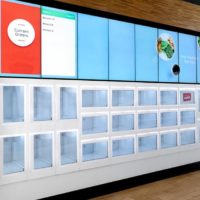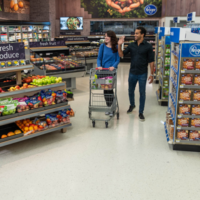
Every week we track the business, tech and investment trends in CPG, retail, restaurants, agriculture, cooking and health, so you don’t have to. Here are some of this week’s top headlines.
News of sexual misconduct allegations have given rise to long-seated issues in the male-dominant restaurant industry. Amongst the guilty contenders was the Besh Restaurant Group, which was accused of creating a culture that allowed harassment and assault. The increasing awareness has since prompted restaurants to reflect, react and publicly define their policies and commitments to creating a culture that’s inclusive and respectful of its workers.
In more restaurant news, ChowNow, a “shopify for restaurants,” has raised a $20 million Series B round led by Catalyst Investors. While the online restaurant space continues to show growth, automated restaurant Eatsa has regressed as it shuttered all but two of its original SF locations this week.
HelloFresh is aiming to make a bang on Frankfurt with an IPO valued at $1.8 billion – more on the results after November 2. Amazon’s drone delivery deployment seems more possible with Trump’s new executive order that is designed to speed the approval of drone flights over crowds for longer distances.
Breaking CPG news this week includes Canada banning Soylent, Nestle pulling out of the GMA and a report that 80 percent of mainstream baby formula and food brands are tainted with arsenic, lead, cadmium and acrylamide. Major offenders included Gerber, Enfamil, Plum Organics and Sprout.
And finally, Chinese scientists have introduced the first-ever genetically engineered pig bred for 24 percent less fat. The genetic modification is said to make pigs less expensive to raise and more resilient in cold weather.
Check out our weekly round-up of last week’s top food startup, tech and innovation news below or peruse the full newsletter here.
_______________
1. How the John Besh Allegations Are Prompting Restaurants to Reevaluate Their Own Policies – Food & Wine
The incident has become an opportunity for restaurants to reflect, react, and publicly define their policies on workplace harassment and their commitment to creating a culture that’s inclusive and respectful of all its workers.
2. Amazon to Control Nearly 45% of E-Commerce in 2017 – Retail Dive
Online sales will account for 9% of all US retail sales by the end of 2017, and the retail giant is poised to capture $196.75b of those sales.
3. HelloFresh Aims for $1.8 Billion IPO Valuation – Bloomberg
The meal kit startup set a price range of 9 to 11.50 euros a share. It’s looking to raise €243m to €311m euros to invest in expanding its business and will begin trading in Frankfurt on November 2, 2017.
4. These Baby Foods and Formulas Tested Positive for Arsenic, Lead and BPA in New Study – USA Today
Researchers found 65% of products tested positive for arsenic, 36% for lead, 58% for cadmium and 10% for acrylamide. Mainstream brands including Gerber, Enfamil, Plum Organics and Sprout were among the worst offenders.
5. CRISPR Bacon: Chinese Scientists Create Genetically Modified Low-Fat Pigs – NPR
Chinese scientists have created 12 healthy pigs with about 24% less body fat than normal pigs in hopes of providing farmers with animals that would be less expensive to raise and would suffer less in cold weather.
6. Amazon’s Dream of Drone Deliveries Get Closer With Trump’s Executive Order – Bloomberg
Trump issued an order designed to speed the approval of drone flights over crowds for longer distances. The administration says it wants to open new commercial uses for drones and create jobs.
7. ChowNow, a GrubHub Competitor, Raises $20 Million Series B Round – TechCrunch
Catalyst Investors led the investment, bringing total funding to the company which calls itself a “shopify for restaurants” to nearly $40m.
8. All-Automated Restaurant Chain Discovers Humans Don’t Like Buying Food from Vending Machines – Grub Street
Eatsa is closing all but two of its cashierless locations. Its original SF locations will remain so the company can continue R&D and build out its retail brand.
9. Canada Bans Soylent for Not Being Real Food – Eater
The Canadian Food Inspection Agency stated the product does not meet its requirements for a meal replacement, and therefore cannot be sold in the country.
Our newsletter is the absolute easiest way to stay on top of the emerging sector, so sign up for it today and never miss the latest food tech and innovation news and trends, Already signed up? Share the love with your friends and colleagues!





